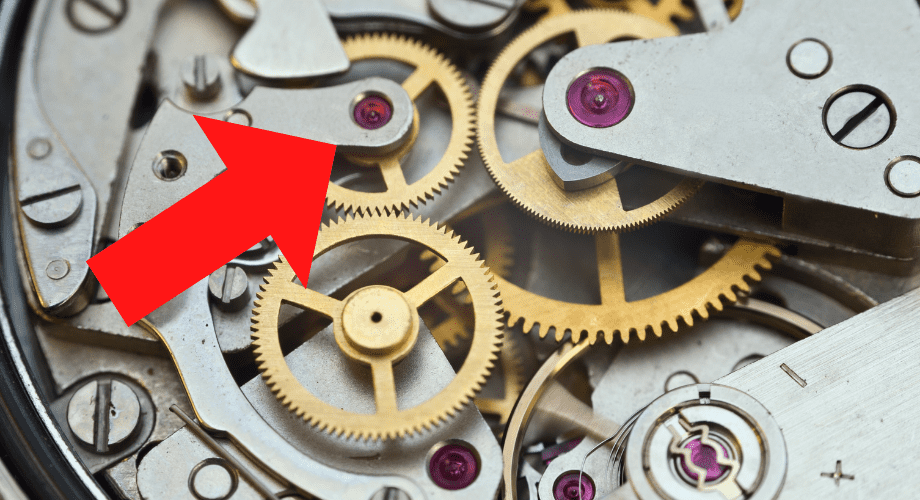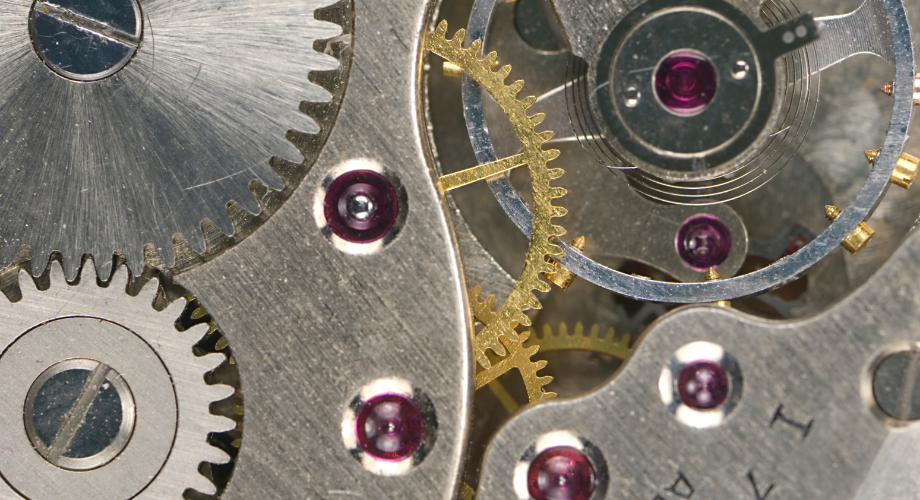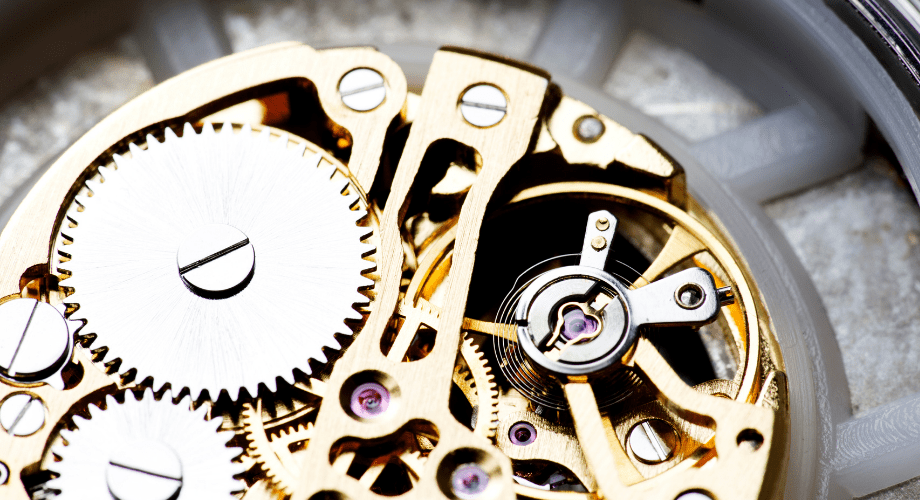
Watch movements are intricate, and it’s the heart and soul of every timepiece. One integral part of a watch movement is watch jewels, which play a role in a smooth all-around movement. But do they hold any value at all? I’ve wondered about this myself and after I’ve done research about watch jewels, I found why they are valuable.
Watch jewels are valuable—they’re not just jewelry inside of watches. Watch jewels are rubies that are cut for use in the gear train of mechanical wristwatches, and they’re valuable because they provide a smooth overall movement. More jewels doesn’t necessarily mean better, but they do play and the quality and number of watch jewels indicate the price of a watch and how complex the timepiece is.
After I had done research into watch jewels, I figured out why they are valuable and essential in timepieces. Read on to find out why watch jewels are valuable, how many jewels are typically in mechanical watches, and more!
Do Watch Jewels Have Any Value?
A watch jewel, or a gemstone that’s used as part of a mechanical timepiece, has value and is typically considered to be a “non-precious” stone. However, the value of a given jewel in a watch can vary greatly—and there is a factor to take into consideration.
One factor is whether the jewel is synthetic or natural. Synthetic rubies and sapphires are generally less valuable than their natural counterparts because they’re not as rare or as difficult to find. However, synthetic stones are often used in jewelry making because they are cheaper and have the same basic chemical composition as natural stones; this means that they can be hard for an untrained eye to distinguish from real stones.
A watch’s jewels are the tiny bearings that reduce friction and wear in the watch’s movement. They’re made of sapphire or ruby because these stones are tough and resistant to scratches, which helps them last through the wear and tear of being used in a mechanical timepiece.
The number of jewels in a watch can be a good indication of its quality. Some vintage watches only have 15 or 17 jewels, while modern watches usually have 17–21 jewels. Generally, the more jewels in a timepiece indicate a more expensive and complex watch.
If you’ve ever wondered what the highest number of jewels a watch has ever had, I have just the resource for you! In another blog post, I wrote about which timepiece has the highest number of jewels in its movement. Click here to check it out!
How Many Jewels In A Watch Is Good?

As a general rule, 17 jewels is considered to be the standard for a fully-jeweled watch, with most modern mechanical watches having anywhere between 17 to 21 jewels. Typically, if a watch has a higher jewel count, then it means it’s more complex, reliable, and valuable.
I would say that the more jewels in a watch is great. The reason is that they act as a bearing to reduce friction. This is not just a good thing theoretically. I have seen a number of watches that were very accurate but had little in the way of jewels and also in my experience, a higher jewel count is always a good thing.
My favorite mechanical timepiece in my collection, my Panerai Luminor Chronograph Daylight, has 27 jewels in its movement. The higher jewel count on my timepiece signifies its complexity and quality. My specific Panerai features more complications than traditional watches such as a chronograph complication as well as a date complication, which requires more mechanical moving parts and more watch jewels.
However, this is just the tip of the iceberg when it comes to jewel count in watches. There are plenty of annual calander, perpetual calander, minute repeaters, and other watches with many complications on the market with well over 27 watch jewels.
For example, the Patek Philippe Grand Complication, which is one of my favorite watches of all time (I’m a real sucker for classy and vintage-esque timepieces), has a total of 24 different complications and 33 watch jewels. The complications, which are functions of the watch other than telling the time, require more moving parts which also means it needs more watch jewels for a smooth movement: this can significantly increase the value of a watch.
This goes to show that while more watch jewels doesn’t necessarily mean better, it may indicate a more complex and reliable overall movement that can affect the value and price of a timepiece.
How Much Do Watch Jewels Cost?

Synthetic watch jewels have little to no cost at all, while natural watch jewels are more expensive. Usually, watch jewels are not sold separately and are usually sold within the movement of a timepiece.
I found a listing of 25 synthetic watch jewels on eBay, one of the world’s largest and trusted internet markets, and its current sales price is around $9. This just goes to show that synthetic watch jewels do not cost much at all since they’re easily made even though they play an important role in its movement.
On the other hand, I found other listings of watch movements that include natural jewels that cost hundreds of dollars, which shows that natural watch jewels cost more than synthetic ones.
Conclusion
If you want to take anything away from this article, remember that watch jewels are valuable and integral to a watch’s movement. The value of a watch jewel depends on whether it’s synthetic or natural, and natural watch jewels are usually more expensive.
Personally, I realized that I have taken watch jewels for granted before I made this article. I thought that they really didn’t serve a purpose and it was a way to make the interior of the watch more aesthetically pleasing. But after learning more about watch jewels, I realized how important they are to a a watch movement.
If you’re someone who is looking for the best watches on the market as well as affordable watches and watch products, I have just the thing for you. I have made a recommendation page where I have researched and recommended the best products on the market so you don’t have to. Click here to check it out!
